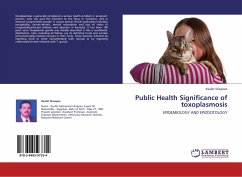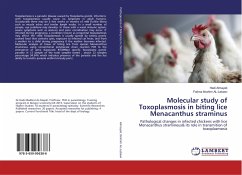
Public Health Significance of toxoplasmosis
EPIDEMIOLOGY AND EPIZOOTOLOGY
Versandkostenfrei!
Versandfertig in 6-10 Tagen
32,99 €
inkl. MwSt.

PAYBACK Punkte
16 °P sammeln!
Toxoplasmosis is generally considered a serious health problem in pregnant women, who can pass the infection to the fetus or newborn, and in immuno-compromised people. It causes several clinical syndromes including encephalitis, chorio-retinitis, mental retardation and loss of vision in congenitally-infected children and abortion in livestock. It has been 100 years since Toxoplasma gondii was initially described it has a worldwide distribution. Cats, including all felines, are its definitive hosts and excrete environmentally-resistant oocysts in their feces. Hosts become infected by ingesting ...
Toxoplasmosis is generally considered a serious health problem in pregnant women, who can pass the infection to the fetus or newborn, and in immuno-compromised people. It causes several clinical syndromes including encephalitis, chorio-retinitis, mental retardation and loss of vision in congenitally-infected children and abortion in livestock. It has been 100 years since Toxoplasma gondii was initially described it has a worldwide distribution. Cats, including all felines, are its definitive hosts and excrete environmentally-resistant oocysts in their feces. Hosts become infected by ingesting food or drink contaminated with oocysts or by ingesting undercooked meat infected with T. gondii.












